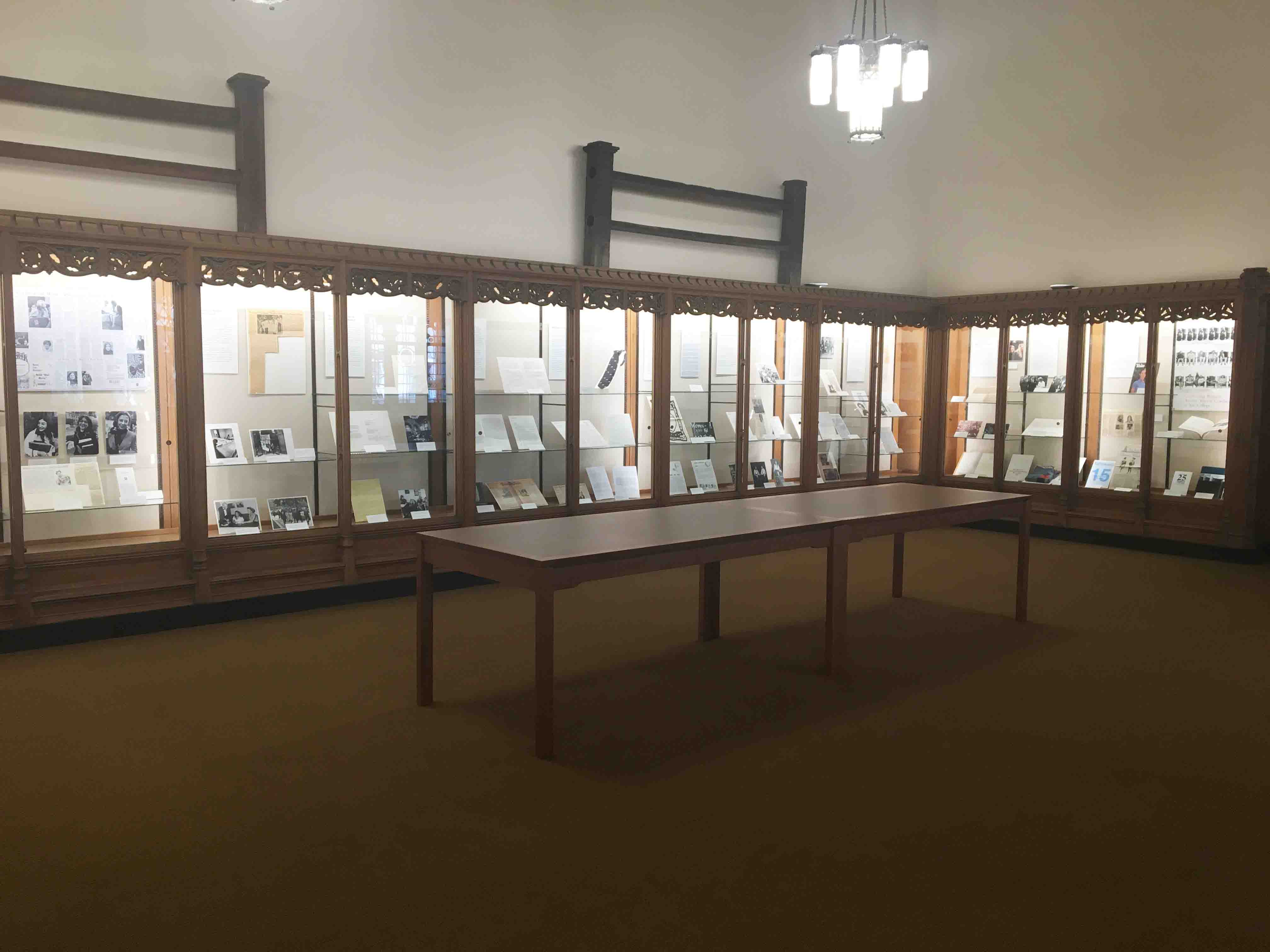
Marisol Carty
When Alice Rufie Jordan Blake, law school class of 1886, was denied admittance to Yale Law School on the grounds that she was a woman, she asserted, “You’ll have to admit me.” Though Yale admitted Blake eventually, the University took nearly 100 years to permit women at all of its divisions.
On view until Oct. 18 in the Memorabilia Room of Sterling Memorial Library, an exhibit titled “When the Walls Came Tumbling Down: Coeducation in Yale College” is one of many “50WomenAtYale150” commemorative celebrations this year. These events and programs celebrate the 50th anniversary of coeducation at Yale College and the 150th anniversary of women at the University.
“When the Walls Came Tumbling Down,” curated by University Archivist Michael Lotstein and Yale School of Art student Carly Sheehan ART ’20, chronologically tracks the history of women at Yale from 1783 to the present and introduces viewers to some of the hurdles these women overcame. Lotstein said that the curators were looking for pieces that would “best capture the actual unfiltered telling of events as they unfolded.” He also expanded on the importance of the exhibit at this moment and its ability to connect with current students.
“From a contemporary standpoint, the 50th anniversary of coeducation, while it seems like it was a long time ago, there are hundreds of women alums from that time. This is a history of something where people who are still alive, that lived it, are reminiscing about,” Lotstein added. “The women who experienced all this are still around, and their story is still very important to the history of Yale in the 20th century.”
The exhibit begins with the first evidence of women students on this campus, in the form of diary entries by then-Yale President Ezra Stiles. In the texts, Stiles describes his thoughts on the intellectual capabilities of the daughter of an alumnus, Lucinda Foote.
Other records include stories of the acceptance of women to the graduate schools and discussions about merging Yale and Vassar College to accommodate women. Although they could enroll in the graduate schools, women could not matriculate into Yale College until 1969. The exhibit explains what prompted this: an experiment called Coeducation Week. In 1968, female undergraduate students were invited to spend a week living and taking classes on Yale’s campus. It was so successful that the following year, the first four-year coeducational class arrived on Yale’s campus.
During his research for the exhibit, Lotstein was surprised to find how eager administrators were to include women in Yale College.
“They believed quite strongly that Yale as an academic institution needed women to be a member of the student body because Yale was losing out on an opportunity to bring the best of the best as far as potential students to Yale, regardless of gender,” Lotstein said.
The exhibit also demonstrates that challenges for women did not end once the first class was admitted. It emphasizes the trials women faced daily, like intolerance, inadequate health services, exclusion from student organizations and the inability to find a restroom. Lotstein noted that these and other trials forced women to create a life at Yale for themselves.
“We wanted to focus not only on the chronology of events, but also things that would have had the most impact on these women, from their applying to Yale to their acceptance to their moving to the college to attending classes,” Lotstein said. “Just what it was in their daily experience as a Yale undergraduate that could be indicative of the challenges that they faced but also the things that they overcame.”
The exhibit showcases materials pulled from the holdings in the University Archives, such as photos, records, memorabilia, articles and quotes from students.
Michelle Peralta, resident archivist for Yale Special Collections, emphasized the value of displaying materials housed in the University Archive.
“Using archives gives you the opportunity to deal with primary source material,” Peralta said. “You can actually read the documents from people who were living at the time and that can be a different experience.”
Two curator tours will take place on Thursday, Sept. 19 from 2:30–5 p.m. and Friday, Sept. 20 from 3–5:30 p.m. These events are free, open to the public and will include an open house at which the curators will take questions and comments.
Marisol Carty | marisol.carty@yale.edu







